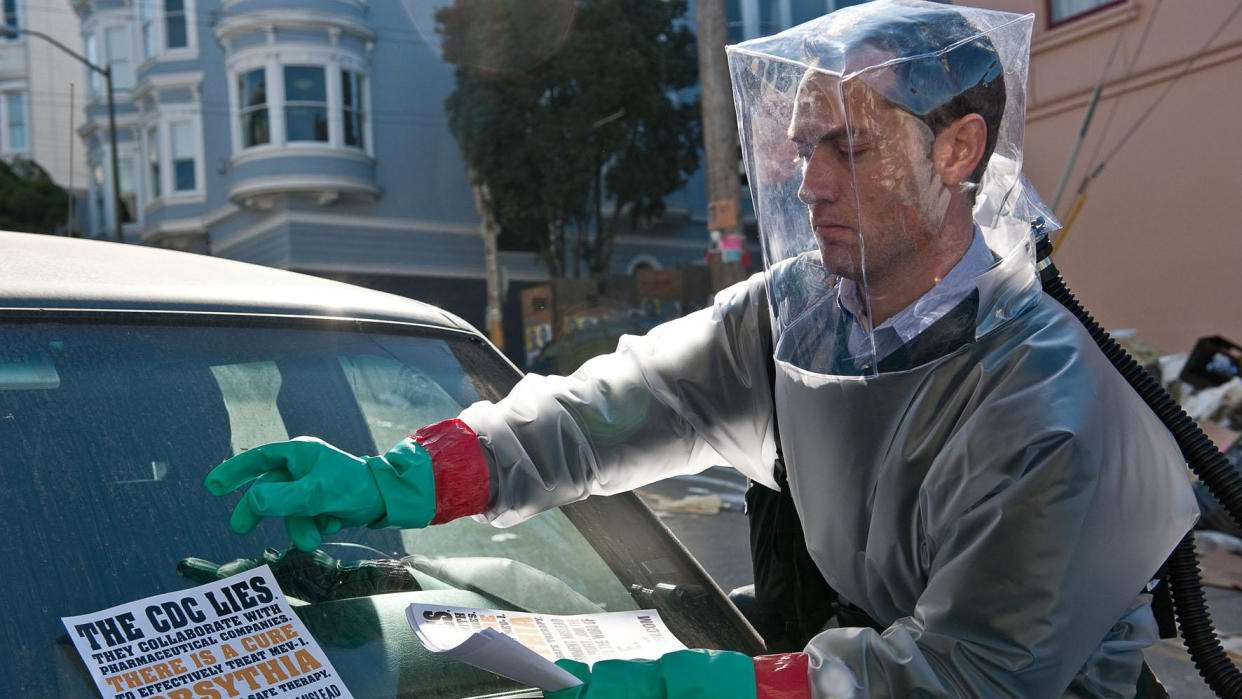Disaster movie fans may be better equipped to deal with the pandemic than others

People who watch disaster films may find coping with the real-life pandemic easier than those that avoid watching them, research has found.
A new paper published by researchers from University of Chicago, Pennsylvania State University, and Aarhus University found that people who watched ‘end of the world’ films had better coping skills for dealing with the current circumstances.
The research was triggered when demand for Steven Soderbergh’s 2011’s disaster film Contagion and 1995’s Outbreak began to rise in January and spiked during the ongoing coronavirus pandemic.
The researchers wanted to know what drove people to seek out entertainment about viruses, and whether being “morbidly curious” was a beneficial trait to have during the health crisis. They surveyed 126 people on 22 March asking them about the genres of movies they watched, how they felt about coronavirus, and whether they’d recently watched the film Contagion.
As reported by Medicalxpress, the research results found that “people who had recently watched what they describe as ‘prepper’ movies showed signs of higher levels of resilience to the real-world pandemic.”
Coronavirus: what happened today
Click here to sign up to the latest news, advice and information with our daily Catch-up newsletter
The research suggests that watching disturbing fictional scenes “psychologically prepared” viewers for real life events as they unfolded, as it helped them to practice coping skills they would need. It also showed that horror and thriller fans were coping better with the pandemic for similar reasons.

 Yahoo Movies
Yahoo Movies 

